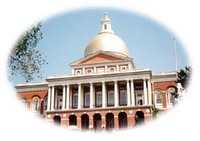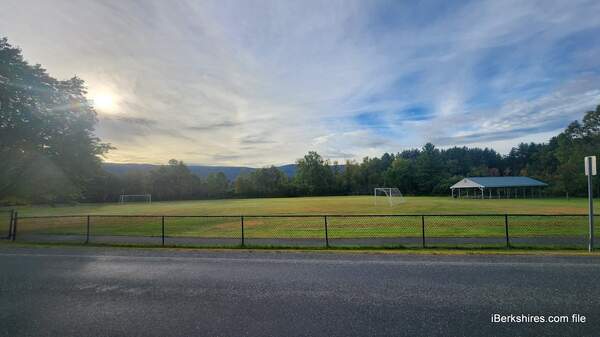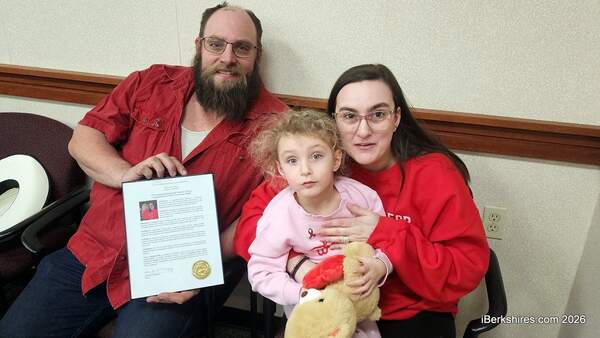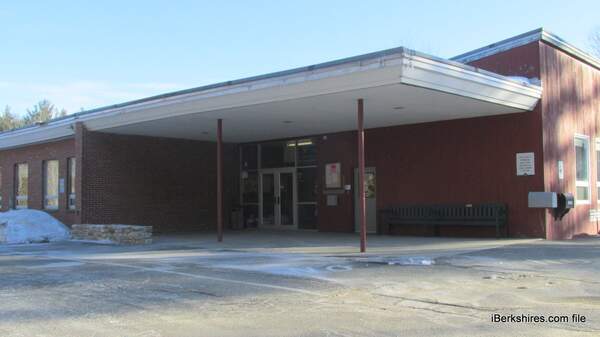Income-Tax Repeal Opponents Plan Strategy
 |
The Question 1 calls for the elimination of the income tax in the state over a period of years, which would strip away more than $12 billion in revenue yearly — nearly half the state budget.
The Center for Small Government and its president, Carla Howell, who's been able to get the initiative on the ballot for the second time in six years (it was barely defeated in 2002), says its passage will force the state to be more frugal and put about $3,600 back in workers' pockets.
"People are going to see this as an enormous carrot," said Richard Alcombright, a city councilor and local banker at an informational meeting earlier this week about fighting the ballot question. Alcombright said he was concerned some state services go away — and those services would fall on cities and towns.
The meeting at the Freight Yard Pub was organized Tuesday by Pamela Schwartz, Western Mass. field director for Coalitions for our Communities, a partnering of unions, civic and community groups, nonprofits, businesses and individuals to defeat Question 1. About a dozen civic, union and business representatives attended.
Voters might rally around the question as "a way to send a message," said state Rep. Daniel E. Bosley, D-North Adams, but he added that the Legislature would be hesitant to overturn the will of the people if it passes. "I don't think you can rely on us to go back into session and repeal it."
Lawmakers say the loss of funds would affect public services such as nurses, firefighters, police officers, teachers and highway workers; halt road and school projects, and gut local aid.
Cutting anything out of the budget is difficult, said Bosley, but the ax would end up falling on not only necessary services but investments in a wide range of areas that the proponents of Question 1 say are wasteful. Massachusetts Museum of Contemporary Art, he noted, would never have got off the ground without millions in grants from the state.
It would have a ripple effect said Bosley; for example bad roads and poorly maintained parks and museums would dampen tourism and damage the economy. Failing schools and infrastucture would make it harder to attract people and businesses. And it has far more serious implications, he said, because it would affect the state's ability to make matching grants with federal funds — the total loss in revenue would be even higher.
"People think that the people on the top get cut," said City Councilor Lisa Blackmer. "But what really happens is the people on the bottom go — those are your neighbors, your family."
She warned of another "brain drain," as young professionals would leave the state for greener pastures.
At the Massachusetts College of Liberal Arts breakfast on Wednesday, union leaders warned that Question 1 would cut 22 percent out of the state college system budget.
"This is not a discussion about the level of services or taxation, this is Libertarians getting together to say 'no tax,'" said Bosley.
Proponents of eliminating the income tax say the state has plenty of money — that actual spending is $47 billion, or $23 billion above actual budget numbers. Cutting $12 billion will still leave the state with $10 billion "in uncut government waste."
Nine states have no income tax, including the Bay State's neighbor to the north, New Hampshire. The Granite State ranks among the highest in property taxes but among the lowest in overall tax burden. Communities there, however, are also facing rising energy costs and soaring county taxes.
Alcombright wanted to research New Hampshire's tax structure before making any decisions.
In Massachusetts, communities could find themselves trying to cover the loss of funds from the state while trying to remain with the Proposition 2 1/2 property tax cap. Permit, licenses and other fees could rise dramatically to cover the shortfalls.
Michael Supranowicz, president of the Berkshire Chamber of Commerce, hesitated to weigh in on the issue without fully understanding what it would mean to local businesses. "I want to put this information out for our members and take a good hard look at this."
Schwartz said opposition to the question is bipartisan and broadbased, and both the Springfield and Chicopee chambers of commerce have already publicly spoken out in opposition. Also on board is the business-backed Massachusetts Taxpayers Foundation. (Citizens for Limited Taxation supports Question 1.)
This was the time to start building a coalition to raise awareness of the issue, she said.
A rally is being planned for Third Thursday (Sept. 18) in Pittsfield, probably at Park Square. Others in attendance suggested information booths during some the Fall Foliage Festival events later in the month.
"The one thing from having to fight this one scary question, it does afford us the opportunity to build a community coalition that can, hopefully, live well past Nov. 4," said Schwartz.















